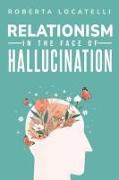Relationalism in the Face of Hallucinations
BücherAngebote / Angebote:
Relationalism claims that the phenomenal character of perception is constituted by the obtaining of a non-representational psychological relation to
mind-independent objects. Although relationalism provides what seems to be the most straightforward and intuitive account of how experience strikes us introspectively, it is very often believed that the argument from hallucination shows that the view is untenable. The aim of this thesis is to defend
relationalism against the argument from hallucination. The argument claims that the phenomenal character of hallucination and perception deserves the same account, and that relationalism cannot be true for hallucinations, therefore relationalism must be rejected. This argument relies on the
Indiscriminability Principle (IND), the claim that two experiences that are introspectively indiscriminable from each other have the same phenomenal
character. Before assessing the plausibility of this principle, I first consider and dismiss versions of the argument which wouldn't depend on IND.
Although widely accepted, no satisfactory support for IND has been presented yet. In this thesis I argue that defending IND requires that we
understand the notion of 'indiscriminability' employed in IND in an impersonal sense. I then identify what underwrites IND: the intuition that, in
virtue of its superficiality, the nature of a phenomenal character must be accessible through introspection, together with the claim that it is not possible
to deny IND without denying the superficiality of phenomenal characters too.
Folgt in ca. 15 Arbeitstagen


